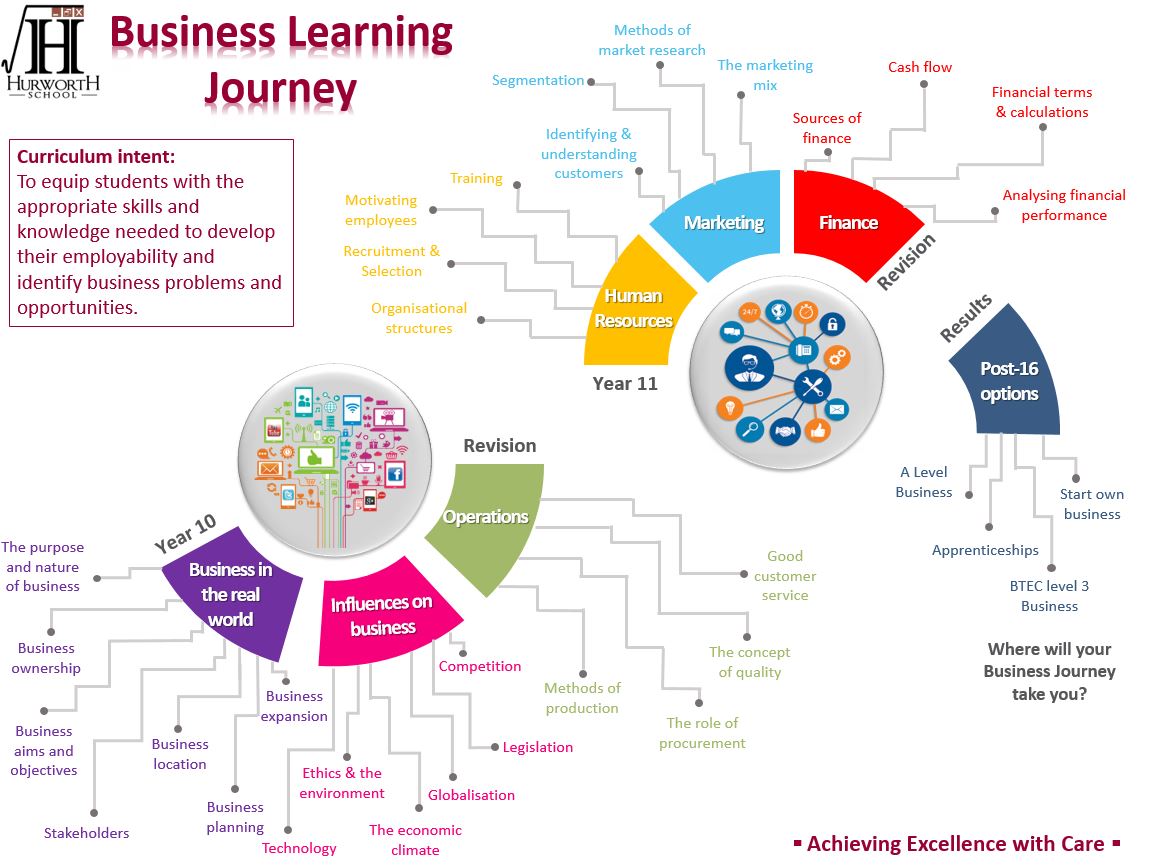Business Studies
Why do we study GCSE Business?
The intent of Business is not only providing students with new knowledge in an area of interest, but to also develop their “Enterprise and Life Skills” so that our Business students can become well rounded individuals within society. The GCSE course is designed to give students a solid, all round knowledge of Business education with the sheer number of topics being covered. This provides our students with the tools required to progress within the subject at post 16, A-level and beyond.
Year 10
Exam Specification
GCSE Business Studies
AQA Specification
Learning Outcomes
Students are introduced to the basics of Business and given the opportunity to assess the basic principles of setting up a business and what external influences can affect them. Further topics introduce the functional areas of Production and Human Resources so that students gain an understanding of their role within business. This work will prepare students for undertaking the assessments in Years 10 and 11.
Topics Taught
Autumn Term
Business in The Real World
• Enterprise
• Business Sectors
• Types of Ownership
• Business Aims and Objectives
• Location Factors
• Stakeholders
• Business Planning
• Expansion Methods
Influences on Business (1)
• Impact of Technology changes
• Ethical Considerations
• Legislation
Spring Term
Influences on Business (2)
• Environmental Factors
• Globalisation
Human Resources (1)
• Organisational Structures
• Recruitment
• Contracts of Employment
Summer Term
Human Resources (2)
• Motivation
• Training
Business Operations (1)
• Methods of Production – Job
• Methods of Production – Flow
• Efficiency in Production
• Managing Stock
• Procurement
• Quality Control
• Customer Services
Year 10 Documents (click to download)
Year 11
Exam Specification
GCSE Business Studies
AQA Specification
Learning Outcomes
Students build on their knowledge from Year 10 by being introduced to the functional areas of Marketing and Finance and looking at how these areas affect a business and its performance. This work is completed early in the spring term so that the students can be given time to prepare for their two GCSE exams.
Topics Taught
Autumn Term
Business Operations (2)
• Logistics
• Supply Chain Management
Marketing
• Identifying Customer Wants and Needs
• Segmentation
• Market Research
• Pricing Strategies
• 4 P’s of Marketing
• E-Commerce and M-Commerce
Spring Term
Finance
• Sources of Finance
• Cash Flow
• Financial terms and calculations
• Average Rate of Return
• Break Even Analysis
• Financial Statements
GCSE Exam preparation
Summer Term
GCSE Exam preparation




